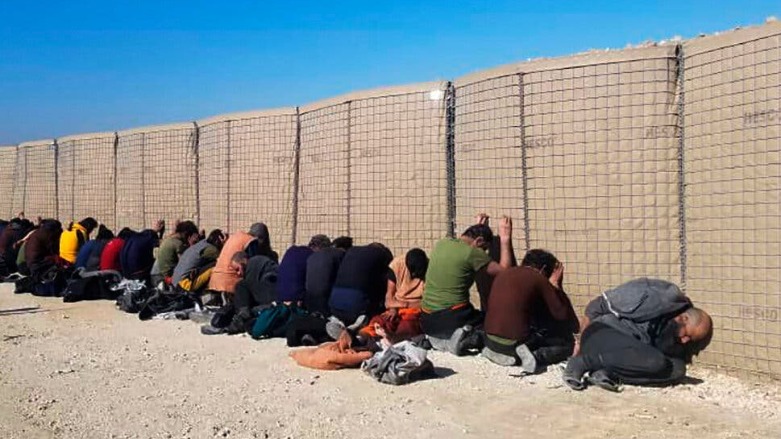US condemns ISIS attack in Syria

WASHINGTON DC (Kurdistan 24) – The US issued a statement on Saturday, denouncing ISIS attack on a prison facility in the Kurdish-controlled city of Hasakah in northeastern Syria.
“The United States condemns Thursday’s ISIS attack on the Hasakah Provincial Internal Security Forces detention center,” State Department Spokesperson Ned Price said, describing it as “an attempt to free detained ISIS fighters.”
That fighting entered its third day on Saturday, as the Kurdish-led Syrian Democratic Forces (SDF) said that it had killed “22 terrorist attackers” that day.
Read More: 22 ISIS fighters killed in fighting near Hasakah prison: SDF
ISIS’ attack on Thursday evening was the largest, most sophisticated assault that it has carried out since 2019—when the Coalition announced that, territorially, it had defeated the terrorist group’s so-called “caliphate” in Syria. (Victory in Iraq was declared two years earlier, by then Prime Minister Haidar al Abadi.)
Thursday’s attack involved coordination between elements inside the prison and ISIS fighters outside. ISIS detainees rioted inside, as they attempted to break out of the prison, while ISIS attacked from the outside. The assault included a car bombing, which allowed ISIS fighters to break through the perimeter of the prison, as well as suicide bombers, who further helped the fighters get through.
The terrorist group “mobilized most of its sleeper cells in an attempt to organize a jailbreak near the Hasakah prison with suicide bombers and an insurgency by detainees inside the prison,” the SDF commander, Mazloum Abdi, explained in a tweet.
The US-led Coalition provided air support to the SDF, as Mazloum indicated in another tweet, and as Pentagon Press Secretary John Kirby confirmed.
Less than 24 hours after the assault in Hasakah—before dawn on Friday and some 650 kilometers to the southeast—ISIS gunmen attacked an Iraqi army barracks in Baqubah, the capital of Diyala province and which lies some 60 kilometers northeast of the Iraqi capital. That attack killed 11 Iraqi soldiers.
Read More: ISIS gunmen in Iraq kill 11 soldiers in brazen barracks attack
ISIS’ assault in Iraq was the most serious such attack in many months, and, along with the assault in Syria less than 12 hours before, raised the prospect that ISIS commanders in Iraq and Syria had coordinated their actions.
They also raised the prospect of ISIS’ resurgence. “The bloody assaults suggest extremists might have been revitalised after maintaining a low-level insurgency in Iraq and Syria over the past few years,” the London-based media outlet, The Arab Weekly, stated.
US Hails SDF in Combatting ISIS
“We commend [the SDF] for their swift response and continued commitment to the fight against ISIS,” Price said on Saturday, and “we extend our sincere condolences to the families of the guards injured and killed in the initial bomb attack and subsequent fighting.”
Price noted that assaulting the prison had been “a top ISIS priority,” as he credited the SDF and the anti-ISIS Coalition for their success in thwarting “numerous” earlier attacks, while limiting the severity of Thursday’s assault.
The SDF holds some 14,000 ISIS prisoners, and the vast majority—some 12,000—are Syrian or Iraqi, while 2,000 are foreign fighters.
Price called on the countries from which the foreign fighters came “to repatriate, rehabilitate, reintegrate, and prosecute, where appropriate, their nationals,” held in the SDF prisons.
Price also affirmed the continued US commitment “to stand with our partners in the region” to counter what he characterized as “the remnants of ISIS.”
“The losses sustained by our partners in these attacks,” Price stated, “are a stark reminder of the very real challenges the region continues to face.”
